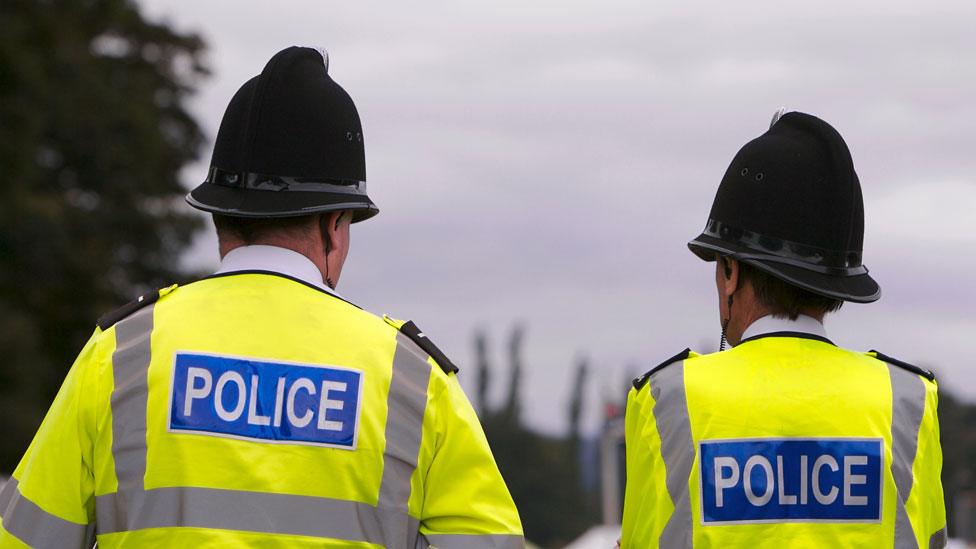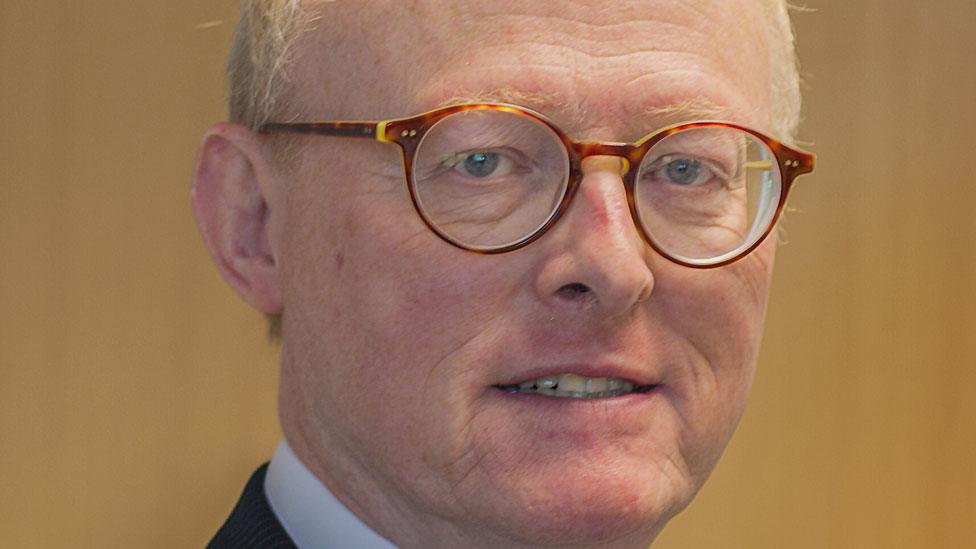Police used as 'first resort' for mental health care, watchdog warns
- Published

There is an "unacceptable strain" on police due to them plugging gaps in other public services, the report says
Police forces in England and Wales are increasingly being used as the "first resort" for dealing with people who have mental health problems, a watchdog has warned.
Sir Thomas Winsor, Chief Inspector of Constabulary, said there was an "unacceptable strain" on police.
In his annual review on policing, external, he said the "inadequacy" of mental health provision should "disturb everyone".
Public safety is being put at risk as a result, he said.
"In some forces police officers end up acting as first responders when no ambulances are available...this is a worrying trend," Sir Thomas said.
'Drain on resources'
Publishing the State of Policing report, he said there were cases of mentally ill people who had not committed a crime spending the night in a police cell because there were no healthcare beds available.
"Police are often being used to fill the gaps that other agencies cannot," said Sir Thomas.
"This is an unacceptable drain on police resources and it is a profoundly improper way to treat vulnerable people."
Until mental health receives the same resources and funding as physical health, the police will continue to play too much of a role in dealing with people with mental health issues, the report said.
There were almost 240,000 incidents in England and Northern Ireland last year in which mental health issues were handled by police, figures released earlier this year suggest.
In total, UK police forces dealt with nearly 300,000 incidents, external involving people with mental health problems last year, the figures suggest.

Sir Thomas Winsor said in his report that the nature of crime was changing
Sir Thomas paid tribute to the bravery of police officers in his report, saying they "do things that most of us would go out of our way to avoid".
He added: "This has been illustrated to a tragically graphic extent by the Westminster terrorist attack in which one very brave police officer, Pc Keith Palmer, lost his life."
His report also found that:
Police should improve their approach to IT and digital policing
The "erosion" of neighbourhood policing highlighted last year is still a concern
The nature of crime is changing, and there is a "modern tsunami" of online fraud
Children are exposed to "very great dangers", often "greater and more prevalent in the online world"
There are concerns not all forces accurately record all reported allegations of rape
Eighteen out of 43 forces need to improve in at least one of the watchdog's main inspection themes of effectiveness, efficiency and legitimacy
- Published2 March 2017
- Published3 February 2017

- Published16 November 2016

- Published6 February 2015
